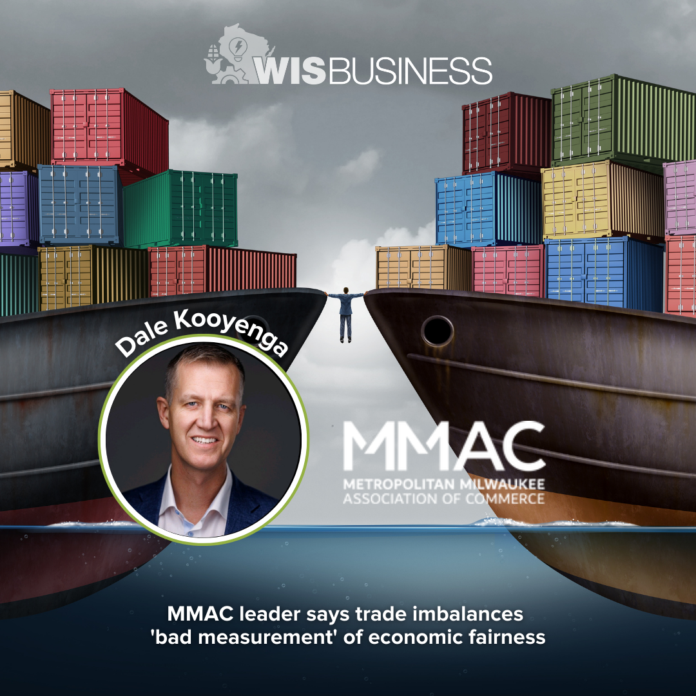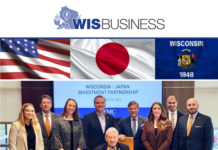The head of MMAC says U.S. trade imbalances with other countries are a “bad measurement” of economic fairness, undercutting a central argument for the Trump administration’s tariff policy.
Dale Kooyenga, president of the Metropolitan Milwaukee Association of Commerce, spoke yesterday during a Wisconsin Technology Council event in Milwaukee. He noted that as U.S. trade imbalances have increased, unemployment has declined and per-capita GDP has risen. And he pointed to specific trade relationships with other countries to emphasize the point.
For one, the United States imports vanilla beans from Madagascar but exports very few products there, creating a trade imbalance. But Kooyenga argues “that’s okay,” because vanilla beans aren’t typically grown domestically and Madagascar’s economy isn’t structured such that it needs many American products.
At the same time, the U.S. has a trade surplus with Australia, whose economy is dominated by mining, Kooyenga explained.
“Logistically, when you add the cost of getting what they mine to North America, it doesn’t economically make sense, so there’s no economic way to right that trade imbalance,” he said.
Yesterday’s discussion ranged from the rise of automation and AI in manufacturing to the impact of tariffs and the uncertainty they’re causing for the industry.
Andrew DeGuire, dean of the College of Business Administration at Marquette University, emphasized the level of commitment needed to make a 20-year investment in manufacturing a product in a given place. That poses a challenge “if you don’t know even remotely how to forecast it,” he said.
“There’s always a long tail with these economic shocks,” he said, pointing to the long-term impacts of the financial crisis of 2008. He asked how long it has taken for residential construction to recover from that fallout, with multiple members of the audience calling out that it hasn’t.
“Exactly,” he said. “Because you saw a behavior shift. People didn’t know what to expect, or just were kind of impacted by that shock.”
Buckley Brinkman, executive director and CEO of the Wisconsin Center for Manufacturing & Productivity, raised the concern about “the second-order and the third-order damage” that’s already being done by tariffs, regardless of how U.S. trade policy may shift going forward.
“If we’re talking about our position in the world as a leadership and stable, and having the world’s currency, that’s a lot to be playing with right now,” Brinkman said yesterday. “The president may be right. He may be right. Nobody can predict sitting here today. But boy, is it a huge gamble.”
Kooyenga, a former Republican state lawmaker, also addressed the argument that tariffs are being used as a negotiating tool, not long after the news broke that the Trump administration has struck a trade deal with the United Kingdom. He referenced a “very, very close Republican friend” that worked in the White House during Trump’s first term, who told him that above all else, the president believes in tariffs.
“My fear is that the president truly believes that tariffs are good,” Kooyenga said. “My hope is that he listens to others around him. And markets don’t lie. Markets can’t be bullied. I hope he listens to markets … The bond market is telling you, and to a lesser extent the equity market is telling you that this is not going to work. So let’s get off it.”






